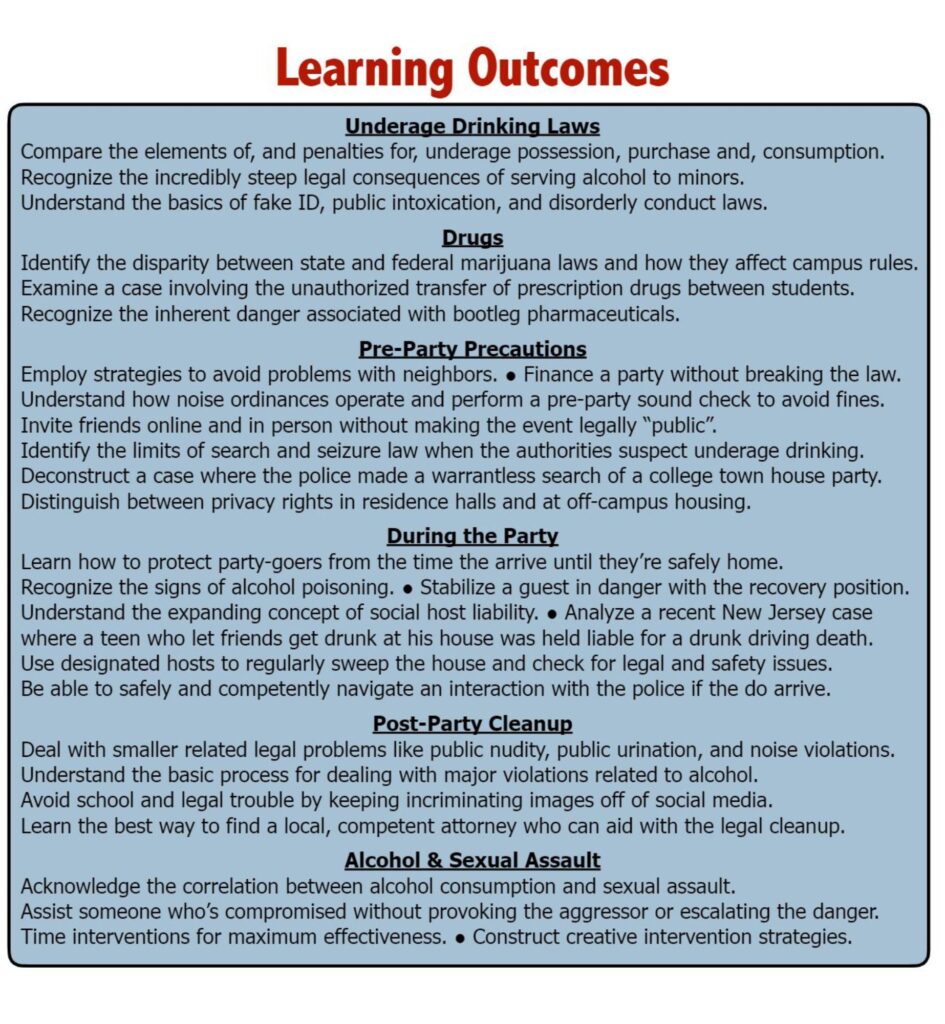College parties are inevitable. Are your students prepared to keep them safe & legal?
Parties and alcohol have been a part of college life for generations. Students naturally seek fun and social interactions with their peers, and hosting a party often seems like the perfect way to achieve that. It’s a tradition that brings people together, fosters friendships, and creates lasting memories. However, while the intentions behind these gatherings are usually good, there is always the potential for things to spiral out of control. What starts as a simple get-together can quickly escalate into a situation fraught with risks and unforeseen consequences.
College parties, though meant to be enjoyable, often face challenges that can lead to serious problems. Overcrowding, excessive alcohol consumption, and a lack of supervision can turn a fun event into a dangerous scenario. Issues such as underage drinking, noise complaints, property damage, and even medical emergencies can arise, putting both the hosts and attendees at risk. It’s essential for students to recognize these potential pitfalls and take proactive steps to ensure that their parties remain safe and within the bounds of the law.
To help students or troops host safe and legal parties, it’s important to emphasize the importance of planning and responsibility. This includes setting clear guidelines for the event, controlling the guest list, and ensuring that there are measures in place to prevent excessive drinking and other risky behaviors. Educating students about the legal implications of hosting parties, such as the consequences of serving alcohol to minors or violating noise ordinances, is crucial. By promoting a culture of responsibility and awareness, students can enjoy their social activities without encountering unwanted problems and can create a safer, more enjoyable college experience for everyone involved.
Lindsay’s expertise is well-documented in his book, The College Student’s Guide to the Law, which has become the definitive authority on legal issues in higher education. Widely used by students, university counsel, and as a textbook for master’s and law courses nationwide, the book offers comprehensive insights into the legal landscape of college life. It covers a broad range of topics, including the legal implications of social media use, helping students understand and navigate the complexities of their online presence.



